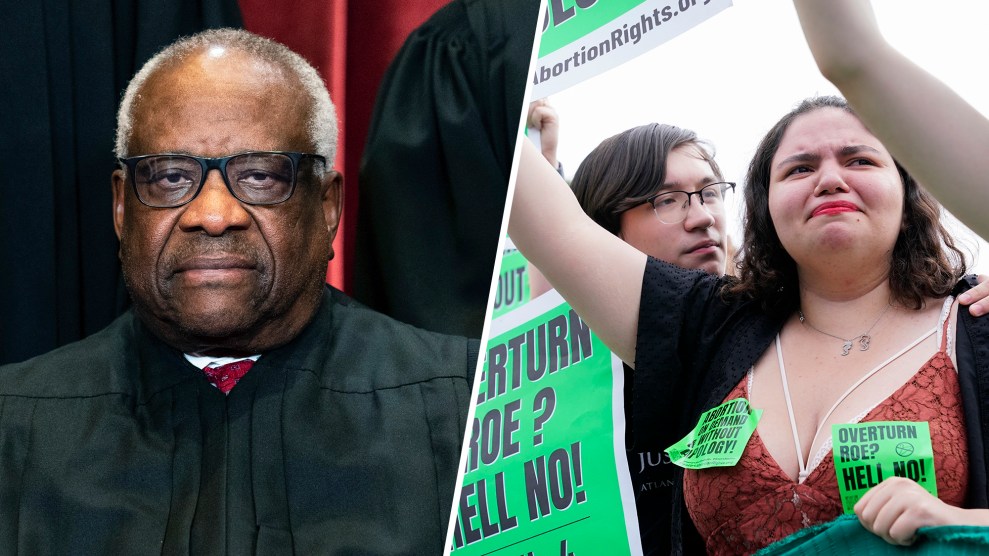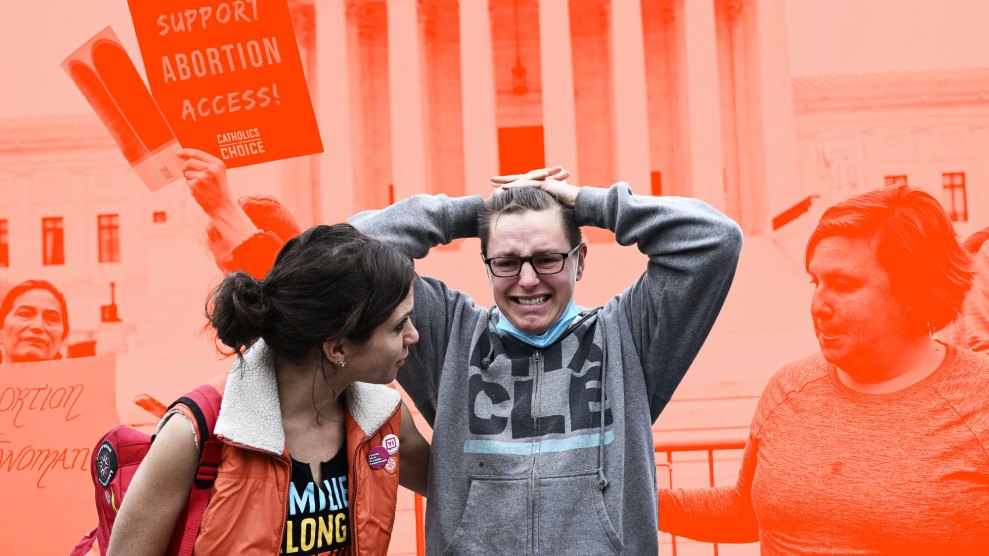
Mother Jones illustration; Erin Schaff/The New York Times/AP, Jacquelyn Martin/AP
On Friday morning, the Supreme Court issued its opinion overturning Roe v. Wade and Planned Parenthood v. Casey—the two decades-old Supreme Court cases that together guaranteed abortion rights in America. The opinion, authored by Justice Samuel Alito, undoes the constitutional right to abortion and returns the right to regulate the procedure to individual states. The decision will likely lead to the criminalization of abortion, at all stages of pregnancy, in about half of the United States.
When news of this was revealed in a leaked opinion in May, advocates made clear that if Roe were to be overturned, it could lead to the decimation of other Supreme Court cases that depend on the same legal principle: these include Griswold, which guaranteed marital couples the right to use contraception; Lawrence, which undid sodomy prohibitions in the US: and Obergefell, which legalized same-sex marriage nationwide.
In their dissent, the three liberal justices make this same point. But in his opinion, Alito pinkie swears that this is not what is afoot here: “The dissent suggests that our decision calls into question Griswold, Eisenstadt, Lawrence, and Obergefell. But we have stated unequivocally that ‘[n]othing in this opinion should be understood to cast doubt on precedents that do not concern abortion.’ ”
On Friday morning, Alito’s conservative colleague on the court, Justice Clarence Thomas, disagreed with that. In his own individual opinion, Thomas wrote that, in fact, overturning Roe should only be the first step. “In future cases, we should reconsider all of this Court’s substantive due process precedents, including Griswold, Lawrence, and Obergefell,” he writes. “Because any substantive due process decision is ‘demonstrably erroneous.’”
“Demonstrably erroneous.” There is very little that is vague about those words. With the death of abortion rights in America, Thomas has now come out and said, in no-uncertain terms, that cases that enshrined Americans’ rights to marry whomever they want and to make personal decisions about their intimacy and child-bearing are flat-out wrong. For now, that is just Thomas’ opinion—none of what he’s written is legally enforceable. But the fact that he’s stating this explicitly affirms the fears of advocates that for many conservatives the demise of Roe was never meant to be the end—but rather a bleak beginning.

















